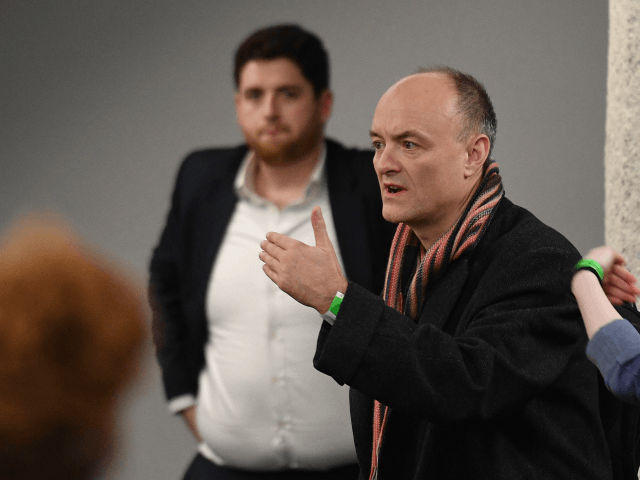There is blood all over the carpet of 10 Downing Street today. Prime Minister Boris Johnson has asserted his authority in his first Cabinet reshuffle — or rather his sinister henchman, Chief Special Advisor Dominic Cummings has — and all ministers not on board with the new project have been ruthlessly defenestrated.
The reshuffle’s highest-profile victim is Chancellor Sajid Javid who jumped rather than be pushed. This may possibly be good news for those of us who were worried about Javid’s increasingly evident left-wing tendencies: before he took the hemlock, he was talking about introducing a Mansion Tax and a raid on pensions.
Then again, it may not, because Javid was at least committed to running a balanced current account budget and to ensure that overall government spending would fall as a share of GDP.
His successor Rishi Sunak may not prove quite so fiscally restrained — and maybe that is the point.
Sunak, formerly Chief Secretary to the Treasury and, at 39 the second youngest Chancellor in modern British history, will have been chosen primarily for his loyalty to the new regime.
Javid resigned after a massive row over the dominant influence of Cummings in the Boris administration. This is perfectly understandable given Cummings’s underlying strategy: to emasculate the Treasury so that it is no longer a powerful fiefdom in its own right but merely an adjunct of the Prime Minister’s office.
What this means, for better or for worse, is that the Boris Johnson administration will be working with powerful unity. Anyone not with the programme can be sure of being ruthlessly binned, whether they are, like Javid, on the Remain-leaning liberal-left of the party, or, like Jacob Rees-Mogg, on the Full Brexiteer right.
Rees-Mogg — at least at the time of writing — has kept his job as Leader of the House of Commons but only by the skin of his teeth, and only then because he is considered more of a threat on the backbenches than he is in the Cabinet. But the obvious inference here is that the Mogg, along with the rest of the European Research Group (ERG) — the “Spartans” of the Brexit movement — has been effectively neutered.
Remain versus Brexit, by the way, is a distinction which Cummings intends to eradicate from this administration as quickly as he can. It’s now more a case of “Are you with us or against us?”
The early weeks of Boris Johnson’s administration have offered little, if any, comfort for those who had been hoping for a more robustly conservative government after the disappointment of David Cameron and Theresa May.
Every policy announcement so far — from Huawei to HS2, but perhaps most especially from the terrifying revelation that the government is perfectly serious in its intentions to base its energy and environment policy on the anti-scientific, socialistic burblings of 17-year old activist Greta Thunberg — has proved so epically dispiriting that it might just have as well have been devised by Labour, the Liberal Democrats or the Greens.
This cabinet reshuffle offers scant evidence of any kind of a rightward shift, except, perhaps in the sacking of the Attorney General, Geoffrey Cox.
During the interminable Brexit debates which have clogged up parliament for the last three or more years, Cox became something of a cult figure because of his attractive, booming, actorly voice. But he was, au fond, a defender of May’s failed withdrawal agreement — and a creature of the Deep State, which may be why Cummings decided he had to go.
Cox’s replacement, Suella Braverman, is a much sounder bet.
Braverman appointment seems to confirm that one of the battles Cummings most wants to win is with the legal and administrative Deep State.
In the run up to the general election, Britain had effectively fallen victim to a constitutional coup, conducted — inter alia — by the rogue activist judges of the judiciary, led by Supreme Court head Baroness Hale.
Britain’s judiciary, irredeemably left wing, stands in the way of Cummings’s plans to rebalance the justice system away from supporting loony liberal-left causes and towards acting in the interests of the British people — e.g. worrying less about the human rights of terrorists and other criminals; worrying more about keeping British people safe.
One of the most encouraging signs, perhaps indeed the only encouraging sign, of the reshuffle so far is that all the worst people on social media have become particularly exercised by Braverman’s appointment.
Clearly, Cummings is doing something right here.
As to the rest, we shall just have to wait and see. The very good news and the very bad news of this government is that whatever Boris Johnson and his key players (Michael Gove, especially) want to get done is very likely to get done. Dominic Cummings, an able and Machiavellian administrator and strategist to rival Talleyrand (or Sun Tsu), is very obviously in control of everything. He will brook no opposition.
And he, after his Day of the Long Knives, now knows no-one is in a position to stop him.
Follow Breitbart London on Facebook: Breitbart London

COMMENTS
Please let us know if you're having issues with commenting.